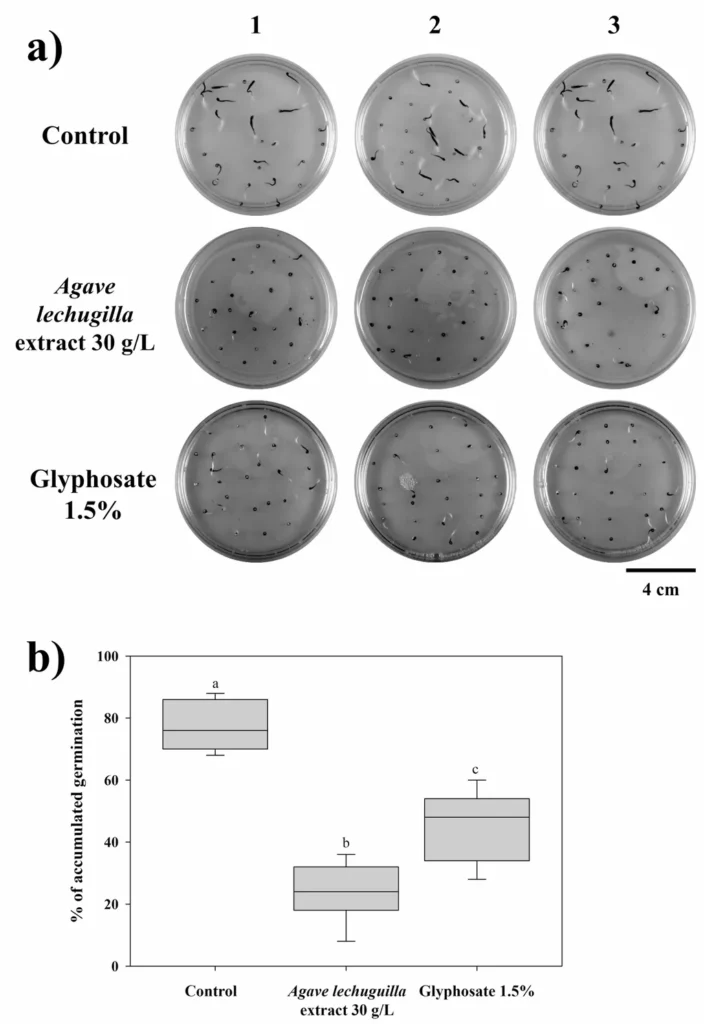In the heart of Coahuila, Mexico, researchers have unearthed a promising alternative to combat one of agriculture’s most persistent foes: weeds. A study led by Adrián Esteban Velázquez-Lizárraga from the Department of Biotechnology at the Autonomous University of Coahuila (UAdeC) has revealed that an extract from the Agave lechuguilla plant could serve as a potent, eco-friendly bioherbicide. Published in the journal Scientific Reports, the research offers a glimmer of hope for sustainable weed management, particularly in the energy sector where invasive plants can hinder crop growth and reduce yields.
The study focuses on Chenopodium album, a resilient weed species that has developed resistance to synthetic herbicides like glyphosate. Velázquez-Lizárraga and his team explored the bioherbicidal potential of Agave lechuguilla extract (AGE) and compared its effects to those of glyphosate. Through advanced transcriptomic analysis, they identified over 6,240 differentially expressed genes in the weed seeds, with AGE treatment inducing 3,246 of these genes and glyphosate affecting 5,234.
The findings are compelling. AGE significantly reduced germination rates and triggered transcriptional changes linked to oxidative stress, hormonal imbalance, and drought stress responses. “This study provides transcriptome-level evidence of differential stress modulation and developmental gene expression in Chenopodium album seeds,” Velázquez-Lizárraga explained. “It highlights the distinct biochemical impacts of a plant-derived versus synthetic herbicide.”
The research delves into the molecular mechanisms underlying these effects. Protein-protein interaction networks revealed that AGE modulated 15 hub genes primarily associated with energy production and stress responses, while glyphosate’s impact was more focused on developmental processes. This multi-target action of AGE suggests a sustainable alternative to chemical herbicides, which often target a single pathway and can lead to resistance.
The implications for the energy sector are significant. Invasive weeds can disrupt crop growth, reduce yields, and increase production costs. A sustainable, multi-target bioherbicide like AGE could offer a more effective and environmentally friendly solution. “This research enhances our understanding of the action mechanisms of plant-based herbicides,” Velázquez-Lizárraga noted. “It may contribute to integrating these alternatives into weed management strategies for sustainable and regenerative agriculture.”
The study’s findings were validated using RT-qPCR, confirming the transcriptomic results and underscoring the potential of AGE as a pre-emergence bioherbicide. As the agricultural industry seeks to reduce its reliance on synthetic chemicals, this research offers a promising avenue for exploration. The use of plant-derived bioherbicides could not only improve weed management but also contribute to the broader goals of sustainable and regenerative agriculture.
In the quest for sustainable solutions, this research marks a significant step forward. By harnessing the power of natural compounds, we may be able to combat weeds more effectively and responsibly, ensuring a healthier and more productive future for agriculture and the energy sector.

